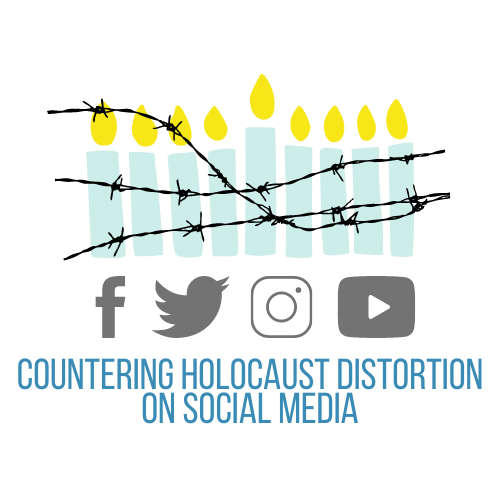about
the project
This is the official website of the project “Countering Holocaust distortion on social media. Promoting the positive use of Internet social technologies for teaching and learning about the Holocaust”. The project is funded by the International Holocaust Remembrance Alliance ( through the 2020 IHRA Grant Projects Program IHRA Grant # 2020 792; IHRA Grant Strategy 2019 2023, line 2 “Countering distortion”; Duration: 1 September 2020 31 August 2022).
In this project we focus on social media as a positive technology to counter Holocaust distortion. Some previous experiences show that providing positive narratives has the advantage of avoiding the validation of distortion that can stem from directly engaging with Holocaust deniers or distorters, and activates important resources for the future to counter narratives around which distortion rumours are based.
From this perspective, Holocaust museums and memorials will be able to play a double role:
- by confronting issues of antisemitism and Holocaust distortion in their social media profiles they can engage with their audience by providing supplementary information, replying to comments, and counteracting inflammatory, digressive or off-topic messages;
- by providing a reliable source of information which might be beneficial to students and teachers for Holocaust projects in schools and out of school, as well as for informal learning.
To achieve these aims, there is a need to raise awareness about the potential of social media channels among museums and memorials for Holocaust education so that they can engage their public not only for promoting their cultural activities and initiatives, but also by producing good practices of social media adoption as a means for disseminating accurate historical information.
An extensive research about the social media profiles of ten Holocaust museums and memorials in two countries (Italy and Germany) will be conducted in order to identify best practices and limitations of social media use and to investigate how they deal with historical knowledge and memory of the WWII and the Holocaust. The results will be translated into practical guidelines and examples of use and disseminated through a number of in-presence and online events to improve museums’ and memorials’ strategies in the urgent challenge to counter the distortion of the Holocaust.
